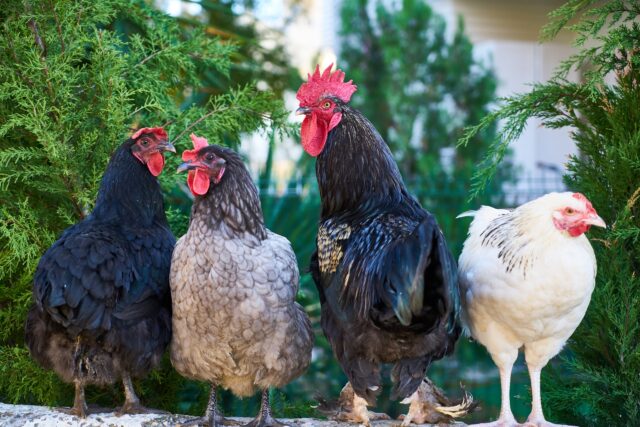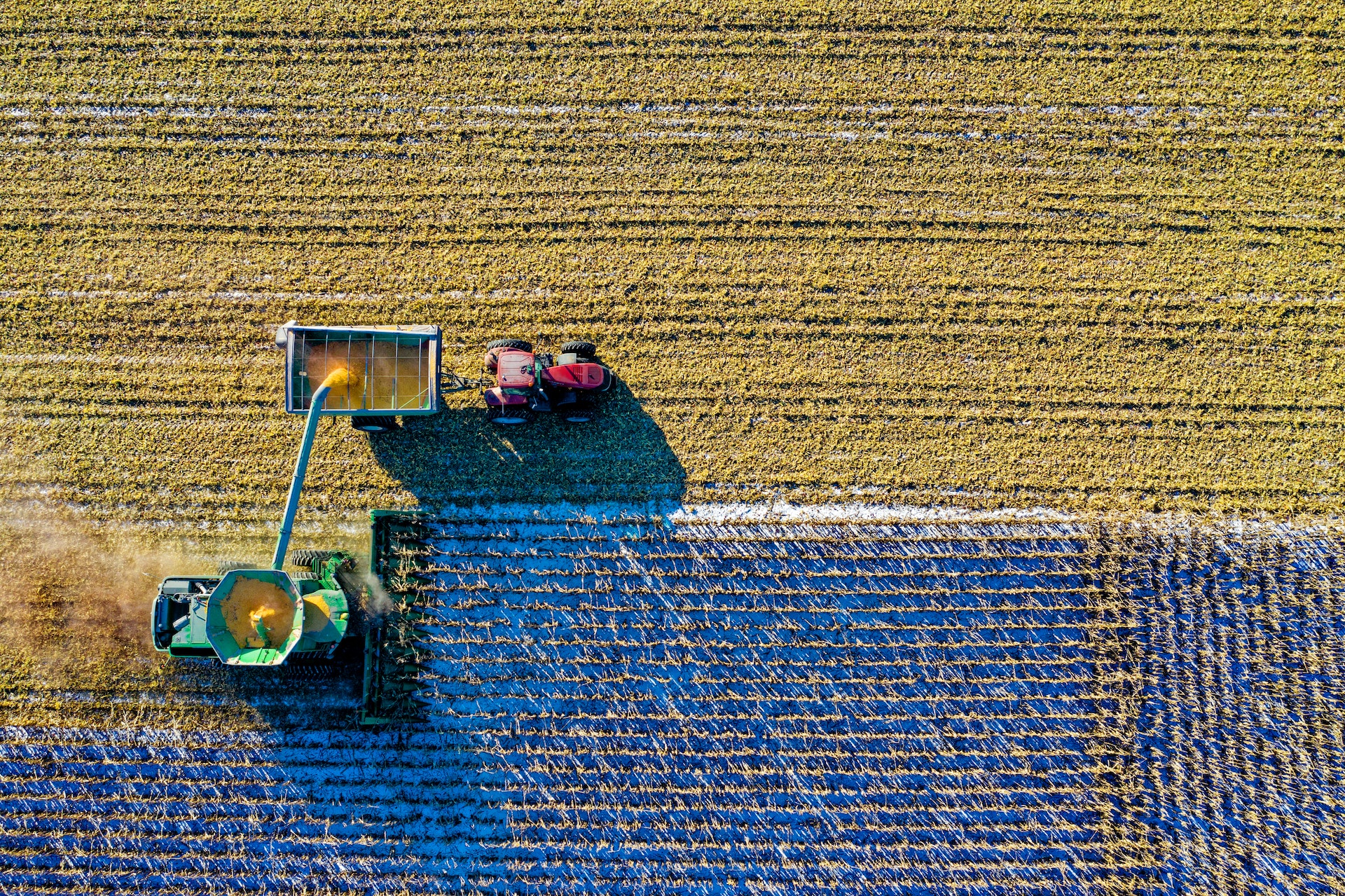Tega Cay, SC (Tega Cay Sun) – South Carolina’s agriculture and farming industry are integral to the state’s economy and cultural fabric, with a diverse blend of crops and livestock forming a rich mosaic of both traditional and innovative agricultural practices. The state’s humid subtropical climate and fertile soil provide the perfect conditions for a wide array of crops, enhancing South Carolina’s status as a center for agricultural creativity and production.
Home to nearly 25,000 farms and spanning 4.8 million acres of farmland, agriculture drives South Carolina’s economy. Combined with forestry, agribusiness stands as the state’s top industry, employing 259,215 people and generating $51.8 billion annually, reflecting the significant impact of agriculture on the state’s economic well-being.
Climate and Geography
Geographically, South Carolina is divided into three distinct regions: the coastal plains, piedmont, and mountain areas. The coastal plains region, which covers approximately two-thirds of the state, is characterized by flat, sandy soil with good drainage. Historically significant, rice paddies once dominated this area, and there’s been a resurgence in artisanal and heirloom rice production. The proximity to the coast also allows for aquaculture, with shrimp and oyster farming being particularly prevalent. Traditional crops like tobacco and cotton continue to thrive in the coastal plains, well-suited to the soil and climate conditions.
The Piedmont region of South Carolina offers a different agricultural landscape, with rolling hills and red clay soil. This area is particularly suitable for peach orchards, lending credence to South Carolina’s claim as the “Tastier Peach State.” The region’s grasslands support cattle, poultry, and pork production, showcasing a diversified approach to agriculture that takes advantage of the unique environmental characteristics.
In contrast, the mountainous region of South Carolina presents a cooler and more varied terrain. This area is suitable for apple orchards, with cooler temperatures providing ideal growing conditions. Some vineyards also utilize the unique soil and climate conditions to produce local wines, adding to the state’s burgeoning wine industry. Crops like cabbage, potatoes, and carrots are grown in this region, further diversifying South Carolina’s agricultural portfolio.
Key Crops

South Carolina is often referred to as the “Tastier Peach State,” and rightfully so, as it’s the second-largest peach producer in the U.S. Second only to California, South Carolina produces over 54,000 tons of peaches annually. The state’s climate, characterized by warm days and cool nights, contributes to the sweetness and juiciness of the peaches.
Tobacco, a crop with deep historical roots in South Carolina, continues to play a major role in the state’s economy. Even with declining demand due to health concerns and changing consumer habits, tobacco farming remains significant, with a shift towards the cultivation of specialty tobaccos for niche markets. Sustainability efforts are also underway, focusing on soil conservation and reduced pesticide use.
Cotton farming in South Carolina, once a primary driver of the state’s economy, remains essential even though it has declined in recent years. Deeply entwined with the history of the American South, cotton continues to be produced for textiles and cottonseed oil. Challenges such as pests and global market prices are met with support from the state in the form of research and resources to enhance yield and sustainability.
The production of soybeans, corn, and wheat is also fundamental to South Carolina’s agricultural landscape. Soybeans are valued for their versatility in products ranging from animal feed to biofuel, and their nitrogen-fixing ability benefits crop rotations. Corn is predominantly used for livestock feed but also finds applications in human consumption and ethanol production. Wheat, grown primarily in cooler months, serves both food and feed industries, with much of the harvested grain processed into products like flour. These staple grains are subject to various challenges, and farmers are adapting by employing precision agriculture techniques to optimize planting, irrigation, and harvesting.
South Carolina takes a prominent position in the national production rankings for various fruits and vegetables, showcasing its agricultural diversity and excellence.
Leading the country, the state is number one in the production of turnip greens, and close behind at number two for collard greens. Other greens, including kale and mustard greens, also contribute to South Carolina’s prominence in this area, both ranked second nationally. Peaches, a symbol of the state’s agricultural richness, are positioned at number two as well, affirming South Carolina’s reputation as a prime producer.
Summer squash and sweet potatoes stand at number eight, while okra holds the fifth spot. Honeydew, and green peas occupy the sixth rank, reflecting the state’s diversified agricultural profile. Rounding out the top ten, bell peppers and cantaloupe add to the state’s acclaimed production levels, ranking ninth nationally. South Carolina is also the tenth leading producer of tomatoes in the country.
The success in growing such a diverse range of fruits and vegetables underscores the state’s agricultural prowess and the adaptability of its farming practices. Whether leafy greens or juicy fruits, South Carolina’s contributions to national production enrich both the economy and the culinary landscape.
Livestock

Poultry represents a cornerstone of South Carolina’s livestock production, with broilers and turkeys being particularly prominent. Falling just outside the top ten nationally, South Carolina produces 250 million chickens annually. The state’s poultry industry is not only a significant source of income for many farmers but also a major contributor to the overall economy. The favorable climate, combined with modern breeding, feeding, and management practices, has allowed poultry farming to flourish in South Carolina. Broilers, raised primarily for meat, are an essential part of this industry, and South Carolina consistently ranks among the top broiler-producing states in the nation.
Turkey farming is another vital component of South Carolina’s poultry sector. The state’s farmers have found success in raising turkeys for both meat and breeding purposes. Extensive research into nutrition, disease control, and housing systems has aided in maximizing the efficiency and sustainability of turkey production.
Beyond poultry, beef cattle farming is a significant aspect of South Carolina’s livestock industry. The diverse geography of the state allows for various grazing systems and feeding practices, adapting to the different needs of beef cattle breeds. Raising beef cattle has deep roots in South Carolina’s farming tradition and continues to adapt to modern demands through sustainable and humane practices.
The dairy sector, although smaller in comparison to poultry and beef, is also present in South Carolina. Dairy farms are typically family-owned and contribute to local economies by providing fresh milk and other dairy products. Advances in dairy management, coupled with a commitment to animal welfare, have supported this vital industry.
Pork production in South Carolina is closely linked to the state’s rich culinary heritage. The raising of pigs, whether for pork or value-added products like cured hams, has been an essential part of South Carolina’s farming landscape. The industry has seen growth through niche markets and specialized breeds, adding to the diversity of the state’s agricultural offerings.
Economic Impact
The agriculture industry in South Carolina is a significant economic engine, contributing over $51 billion annually to the state’s economy. It influences various sectors, including manufacturing, transportation, and retail, creating a complex network that supports the broader economic framework. The industry provides jobs for more than 250,000 people, including farmers, farmworkers, and professionals in related fields such as agribusiness and food processing. These diverse career opportunities make agriculture a vital source of employment in both urban and rural areas.
South Carolina’s diverse agricultural products have found markets across the globe, fostering international trade relationships and strengthening the state’s position in the world market. Agriculture also plays a fundamental role in supporting local economies, particularly in rural areas. Initiatives like farmers’ markets, community-supported agriculture (CSA) programs, and agritourism link farmers directly to consumers, fostering community connections and sustaining small-scale farming.
The state has seen growth in the production of value-added agricultural products such as specialty foods and wine. These products not only create new revenue streams for farmers but also contribute to South Carolina’s culinary reputation and tourism appeal. Investment in research and development leads to innovation and technological advancement, with universities, research centers, and private companies working together to develop sustainable farming practices and improve crop yields.
Sustainable farming practices in South Carolina contribute to the economic viability of farms and play a part in conserving natural resources and maintaining ecological balance. This stewardship enhances the long-term sustainability of agriculture in the state. Additionally, the state’s rich agricultural bounty has shaped South Carolina’s culinary landscape, influencing everything from traditional Southern cuisine to modern farm-to-table dining.
South Carolina’s agriculture industry’s economic impact is profound and multifaceted, extending from the individual farmer to global networks. Whether measured in dollars, jobs, or cultural influence, the role of agriculture in South Carolina’s economy is both essential and enduring, touching the lives of citizens in myriad ways and leaving an indelible mark on the state’s heritage and future.
Education and Research

In South Carolina, education and research in agriculture play a pivotal role in shaping the industry’s future. Universities, particularly Clemson University, are at the forefront of providing vital support through research, education, and extension services.
Clemson University’s commitment to agricultural research extends beyond the classroom and into the field. It has invested heavily in state-of-the-art research facilities, creating spaces for innovation and experimentation. This investment in research has led to breakthroughs in crop management, soil conservation, pest control, and sustainable farming practices. Such research has direct implications for the state’s farmers, helping them adopt new techniques that improve yield, efficiency, and sustainability.
Education is another key facet of Clemson University’s contributions to South Carolina’s agriculture. Through its College of Agriculture, Forestry, and Life Sciences, Clemson offers degree programs that prepare the next generation of agricultural professionals. The university’s curricula are not only focused on traditional agricultural sciences but also encompass emerging fields such as food safety, agribusiness management, and environmental stewardship.
Extension services provided by Clemson University bridge the gap between research and practical application. Through county offices, field specialists, and community programs, the university delivers research-based knowledge directly to farmers, industry professionals, and the general public. These extension services cover a wide array of topics, from crop management to community development, and play a vital role in transferring scientific discoveries into real-world solutions.
Clemson’s collaborations with other universities, government agencies, and private industry further amplify its impact. These partnerships foster a holistic approach to agricultural development, pooling resources and expertise to tackle complex challenges facing the industry.
Beyond Clemson University, other institutions and organizations in South Carolina are also contributing to agricultural education and research. Technical colleges, vocational training programs, and agricultural organizations offer additional opportunities for education, training, and professional development.
The nexus of education and research within South Carolina’s agricultural landscape is integral to the continued growth and success of the sector. Institutions like Clemson University embody a commitment to innovation, learning, and community engagement that fuels the industry’s resilience and adaptability. Their efforts in research, education, and extension services not only nurture the current agricultural community but also cultivate the future leaders and innovators of South Carolina’s agriculture industry. The collaboration between academia, industry, and community ensures that South Carolina remains at the cutting edge of agricultural science and practice, preserving a rich farming tradition while embracing new horizons.
South Carolina’s agriculture and farming industry is a dynamic and vital component of the state’s economy and culture. With a rich diversity of crops and livestock, coupled with innovative farming practices, South Carolina’s agricultural landscape is positioned to thrive in the years to come. The blend of tradition and innovation paints a picture of a vibrant industry that honors its roots while embracing the future. Whether through the sweet taste of a locally-grown peach or the educational initiatives paving the way for new generations of farmers, South Carolina’s farming heritage continues to flourish.








